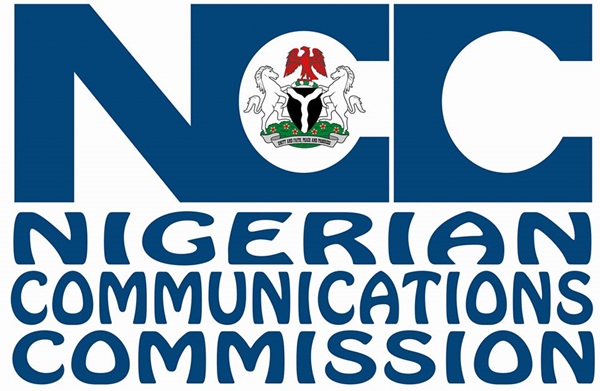
The Nigerian Communications Commission (NCC) has directed all telecom licensees in the country to inform consumers of any major service outage on their networks using media channels.
This directive mandates the disclosure of the cause of the service interruption, the affected areas, and the estimated time for service restoration.
In cases of planned service disruptions, operators are required to inform the public at least one week in advance. The new requirement, outlined in the “Directive on Reportage of Major Network Outages by Mobile Network Operators (MNOs),” is part of the commission’s ongoing efforts to promote transparency, resolve outages promptly and enhance service quality for telecom consumers.
According to the directive, mobile network operators (MNOs), Internet Service Providers (ISPs) and other operators offering last-mile services are now required to provide proportional compensation to affected consumers. This compensation could include an extension of service validity and must comply with provisions in the Consumer Code of Practice Regulations. It becomes applicable if a major outage extends beyond 24 hours.
The commission identified three categories of major outages. The first includes any operational condition, such as fibre cuts caused by construction, vandalism, or theft and natural events that impact five percent or more of the operator’s subscriber base or affect five or more Local Government Areas (LGAs). The second category includes any unplanned outage or complete network isolation that affects 100 or more sites, or five per cent of the total network sites, whichever is smaller. Outages affecting at least one cluster and lasting more than 30 minutes also fall into this category. The third includes outages that degrade network quality in any of the top ten states based on traffic volume, as defined by the NCC.
To ensure accountability and public access to information, the NCC has directed all operators to report major outages through its major outage reporting portal, accessible via the commission’s website at www.ncc.gov.ng. The portal not only tracks incidents but also discloses the identity of those responsible for disruptions.
Acting head of public affairs at NCC, Nnenna Ukoha confirmed the new directive and emphasised the commission’s commitment to consumer protection and network accountability.
Speaking about the portal and the reporting directive, director of technical standards and network integrity at the commission, Engr. Edoyemi Ogor noted that the system had already been piloted with operators before being rolled out fully.
“We have tested the portal with operators to ensure its functionality and responsiveness. This directive is part of our broader consumer protection framework,” he said.
According to Ogor, the measure aims to establish a culture of transparency and shared responsibility within Nigeria’s telecom sector.
“By giving consumers timely, transparent information about outages, we are fostering accountability among service providers. This also ensures that those responsible for damaging telecom infrastructure are held accountable,” he said.
He added that the initiative aligns with President Bola Tinubu’s Executive Order, which designates telecommunications infrastructure as Critical National Information Infrastructure (CNII). This classification highlights the importance of securing telecom infrastructure given its role in supporting national security, economic resilience and essential services.
The commission believes the new directive will also help in managing public expectations during service disruptions. By providing real-time information and holding operators accountable, the NCC aims to protect consumer rights while supporting service reliability and efficiency.
Industry observers have welcomed the move, noting that for years, consumers have expressed frustration over network blackouts and lack of information from providers. The new framework gives users not only the right to be informed but also avenues to demand redress when service standards are not met.
The NCC emphasised that outages caused by sabotage, natural disasters and systemic faults must be fully reported, regardless of scale, if they meet the defined thresholds. Operators must also keep detailed records of remedial actions taken, including timelines, and submit this information to the commission.
The commission also stated that all reports submitted to the Major Outage Reporting Portal will be audited and non-compliance could result in regulatory sanctions.
Ogor explained that the commission’s strategy is about strengthening the entire telecommunications ecosystem, not just penalising providers. “We want to build systems where issues are identified and resolved quickly, where operators feel accountable and consumers are respected and informed,” he said.
Stakeholders have been encouraged to engage with the commission’s consumer platforms, including the 622 toll-free line, for complaints and clarifications.
The portal will also serve as a repository for analysing outage patterns and identifying systemic vulnerabilities in the telecom infrastructure. The NCC intends to use this data to inform future regulations, invest in risk mitigation strategies and collaborate more effectively with security agencies.
Ogor stressed that this collaborative and preventive approach is necessary as Nigeria deepens its reliance on digital technologies and telecommunications for everything from banking and health services to education and remote work.
“In today’s world, downtime is not just an inconvenience; it has real consequences on businesses, livelihoods and even emergency response,” he said.
The NCC is also urging service providers to invest more in backup systems, infrastructure protection and localised redundancy to reduce outage durations. The commission plans to work closely with local governments to curb cable vandalism and implement stricter surveillance at critical network points.
As the directive takes effect, telecom users across Nigeria are expected to begin noticing more proactive communication from their service providers regarding network disruptions. The NCC believes that with proper implementation, this policy will help strengthen consumer trust and elevate the quality of service standards in the country.
In an industry where trust, reliability, and transparency are paramount, the commission’s latest move is a step towards reinforcing these values and building a telecommunications system that is truly responsive to the needs and rights of every Nigerian.


